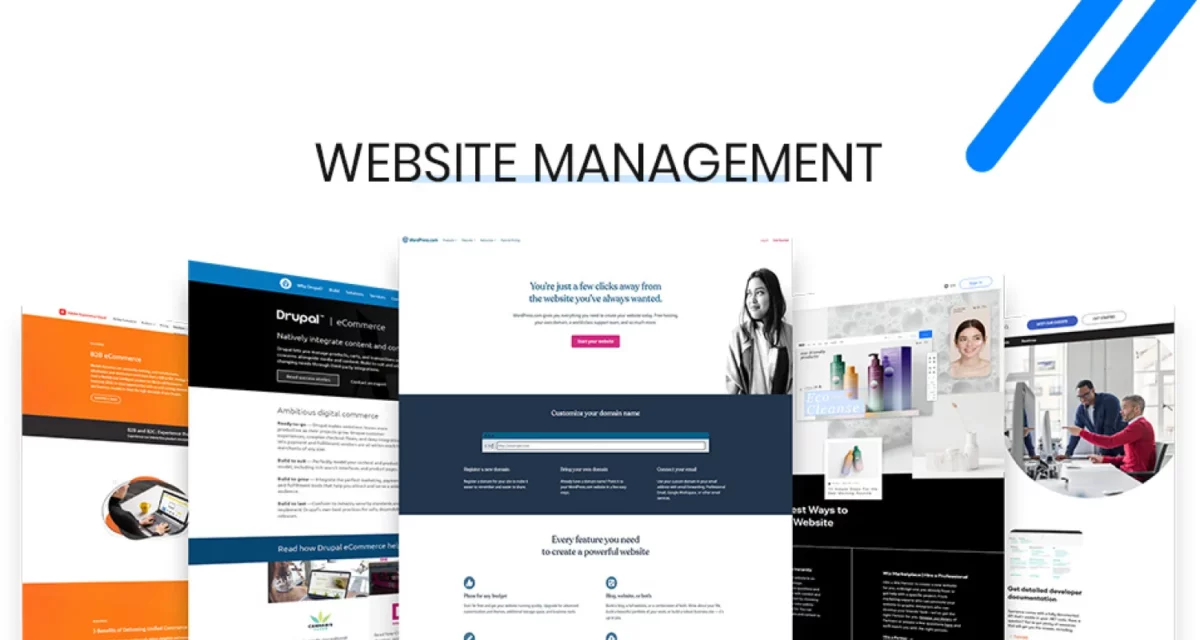Discover the most common types of websites, including business, e-commerce, blogs, portfolios, educational platforms, and more. Learn how each type functions, what purpose it serves, and see real-life examples to help you decide which website fits your goals best.
The internet is huge-like, really huge! Every day, we visit countless websites for work, shopping, learning, and entertainment. But did you know that all of these websites fall into different categories? From online stores to blogs, each type of website serves a specific purpose and helps people accomplish different things.
Whether you’re a business owner looking to launch your first site or just exploring top website categories with examples, understanding the types of websites out there can help you make smarter decisions. In this guide, we’ll explore website classifications, key website functions, and provide real-life website examples to bring it all together.
In this article, we’ll explore the various website types, what they’re used for, and give you real-life examples to show you exactly how each one works. Let’s dive in and make sense of the world of websites!
1. Business websites
In today’s digital age, every business needs an online presence. Business websites are the foundation of that presence. Whether you’re a small startup or a large corporation, having a business website helps you build credibility, attract customers, and showcase your products or services.

1.1 What is a business website
A business website is a site designed specifically to represent a company online. It’s usually the first place potential customers go to learn more about a business. A business website can be as simple as a one-page site with your contact details or as complex as a multi-page site that includes product catalogs, customer testimonials, and blog posts. These are the most common and essential types of business websites. They represent a company online and help build trust, visibility, and conversion.
1.2 Why do you need a business website?
- Credibility and trust: A business website acts like your storefront. Having a professional, easy-to-navigate website can make your business appear more trustworthy.
- Showcase your products and services: A business website gives you the space to showcase what you offer. Whether it’s product pages, service descriptions, or portfolio galleries, your website is the perfect platform to highlight your work.
- Marketing and SEO: A well-optimized business website can help you get noticed on search engines like Google. This means more potential customers can find your business through organic search results.
- Customer interaction: A business website can include features like contact forms, chta support, and email signups, which make it easy to connect with your customers directly.
2. E-commerce websites
Among all website categories, e-commerce platforms have exploded in popularity. E-commerce websites are the go-to platforms for buying and selling products. From small businesses to big brands, everyone is jumping on the e-commerce bandwagon. If you want to sell anything online, having an e-commerce website is the way to go.
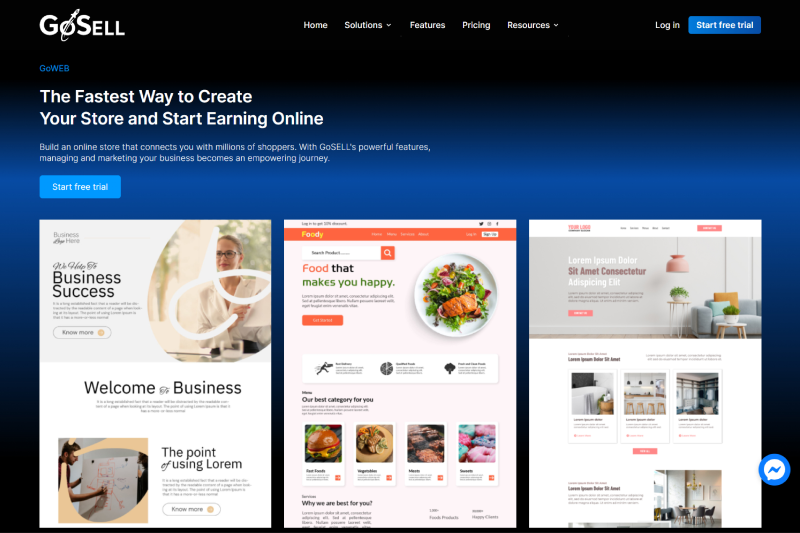
2.1 What is an e-commerce website?
An e-commerce website is a site specifically designed for buying and selling products or services. It includes features like online catalogs, product descriptions, payment gateways, and shopping carts. Whether you’re selling physical items or digital downloads, e-commerce websites make it easy for customers to shop from the comfort of their homes.
2.2 Why do you need an e-commerce website
- Reach a global audience: With an e-commerce website, your products can be accessed by people around the world. This gives your business the chance to tap into international markets and grow beyond your local community.
- 24/7 sales: Unlike physical stores with set hours, an e-commerce website lets you sell products around the clock. Your website never closes, allowing customers to shop whenever it’s convenient for them.
- Convenience for customers: An e-commerce website provides a seamless shopping experience. Customers can browse products, read reviews, add items to their cart, and check out—all from their phone, tablet, or computer.
- Data and analytics: One of the great things about e-commerce websites is that you can track everything. From the products customers view to the items they buy, you’ll have a wealth of data to help you make informed business decisions.
3. Blog websites
Among the types of websites, blog websites are one of the most popular and versatile. Whether you’re a writer, traveler, business owner, or just someone with something to say, a blog is a great way to share your thoughts with the world. This is one of the most flexible types of websites.
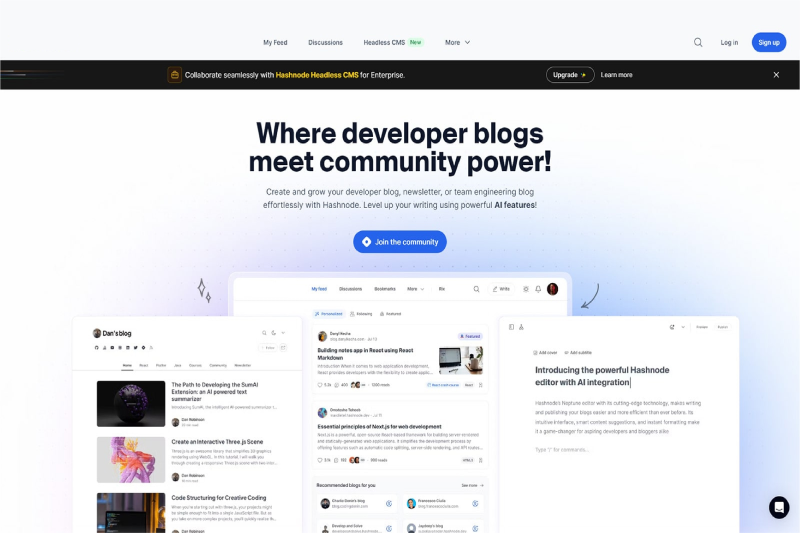
3.1 What is a blog website?
A blog website is a site made mainly for posting articles, updates or personal stories. These articles, also called blog posts, are usually displayed in reverse chronological order, with the newest post at the top.
People use blog websites to write about all kinds of things, food, fashion, tech, parenting, finance, travel, and so much more.
3.2 Why start a blog website?
- Share your voice: Blogging lets you express your ideas and connect with others who share your interests.
- Build a personal brand: If you’re a freelancer, coach, or creative, a blog website can help you stand out and show your expertise.
- Support your business: Many companies use blogs to share tips, industry news, or updates. It helps with marketing and improves SEO by attracting organic traffic through helpful content.
- Make money: Some bloggers earn income through ads, sponsored posts, affiliate links
4. Portfolio websites
Portfolio websites are built to showcase work ideal for creatives like designers, developers, photographers, and writers. If you’re a creative professional like a designer, writer, photographer, or developer, having a portfolio website is a must. It’s your online resume and gallery all in one.

4.1 What is a portfolio website
A portfolio website is a personal site where you can showcase your best work, list your skills, and tell people more about who you are and what you do. It’s one of the most important website categories for freelancers, creatives, and job seekers.
These websites are often clean and simple, putting the focus on the work itself—images, writing samples, case studies, or even client testimonials.
4.2 Why you need a portfolio website
- Make a great first impression: When someone Googles you, your portfolio website can show up first and it should look professional and polished.
- Showcase your best work: Unlike a resume, a portfolio website lets you actually show what you’ve done, not just talk about it.
- Attract clients or employers: Whether you’re applying for jobs or offering services, a portfolio gives people a clear idea of what you can do.
- Stand out from the crowd: In competitive fields, a standout portfolio can be the thing that gets you noticed.
5. Educational websites
A must-mention in any list of types of websites. These platforms are designed for learning. Educational websites are changing the way we learn. Whether it’s a kid learning math, a student studying for exams, or an adult picking up a new skill, there’s an online platform out there for it.

5.1 What is an educational website?
An educational website is designed to provide learning content, courses, or training materials. These sites fall into the website category focused on knowledge-sharing, and they can be created by schools, teachers, organizations, or individual educators.
Some offer full online courses with videos and quizzes, while others share free resources, tutorials, or downloadable worksheets.
5.2 Why educational websites matter
- Easy access to learning: Anyone with an internet connection can access educational websites, making learning more available than ever.
- Flexible and self-paced: Many online platforms let users learn at their own speed, whenever and wherever they want.
- Supports schools and teachers: Schools use these websites to support in-class learning or offer extra materials to students.
- Skill development for adults: Want to learn coding, photography, marketing, or design? Educational websites like Coursera or Khan Academy make it possible without stepping into a classroom.
6. News website
Gone are the days when you had to wait for the morning paper or the evening news. With news websites, staying informed is just a click away. These websites are built to deliver the latest updates on everything from world events to sports and entertainment. These fall under website classifications focused on real-time updates.

6.1 What is a news website?
A news website is a type of website that shares current events, breaking news, opinion pieces, and more. It’s part of the website category designed to inform the public. Some are global, covering international news, while others focus on local communities or specific industries.
These websites are usually updated multiple times a day and are designed to be fast, more-friendly, and easy to navigate.
6.2 Why news websites are important
- Instant access to information: Whether it’s politics, health, weather, or tech, news websites give you real time access to what’s happening in the world.
- Different perspectives: You can read opinions and reports from different sources to form your own understanding.
- Multimedia content: Today’s news websites include videos, photo galleries, infographics, and even podcasts to make the content more engaging.
- Easy sharing: Articles are made to be shared via social media, email, or even messaging apps, so information spreads quickly.
7. Community and forum-based websites
Sometimes, the best part of the internet isn’t the content, it’s the people. Community websites and forum-based websites are all about connection. These are types of websites built around conversation. They give users a space to ask questions, share experiences, or just hang out with like-minded folks online.
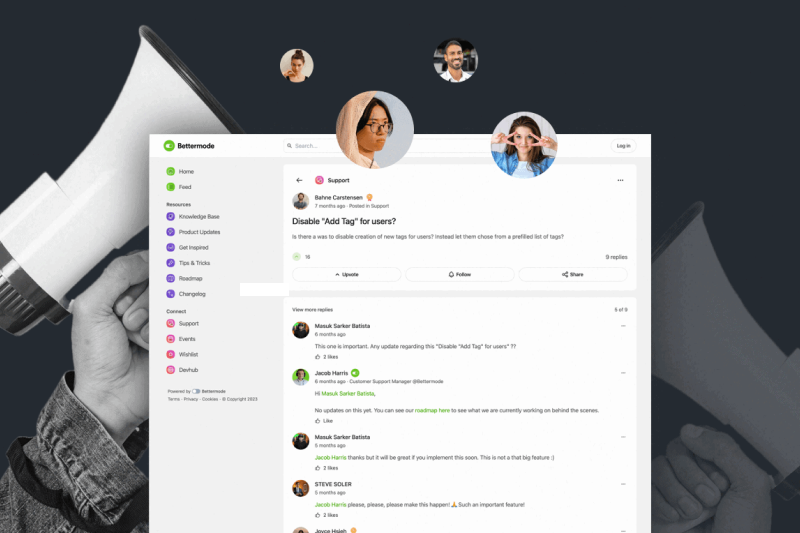
7.1 What are community and forum-based websites?
These are platforms built for user interaction. Unlike other website categories that focus on content from a single source, these sites are driven by users themselves. People create posts, reply to others and build discussions around topics they care about.
Some forums are open to the public, while others require membership or moderation to keep things safe and respectful.
7.2 Why people love forum-based and community websites
- Shared interest: Whether it’s gaming, parenting, fitness or finance, there’s a community out there for almost every topic.
- Support and advice: Users help each other solve problems, offer tips or just provide a friendly ear.
- User-generated content: The content is always evolving, and it comes straight from real people, not just brands or media outlets.
- Long-term engagement: The platforms often build loyal communities that stick around for years.
8. Government and civic websites
Need to renew your ID, check your taxes, or find information about local services? Government websites and civic websites are built just for that. These types of websites and their purposes are rooted in public service.
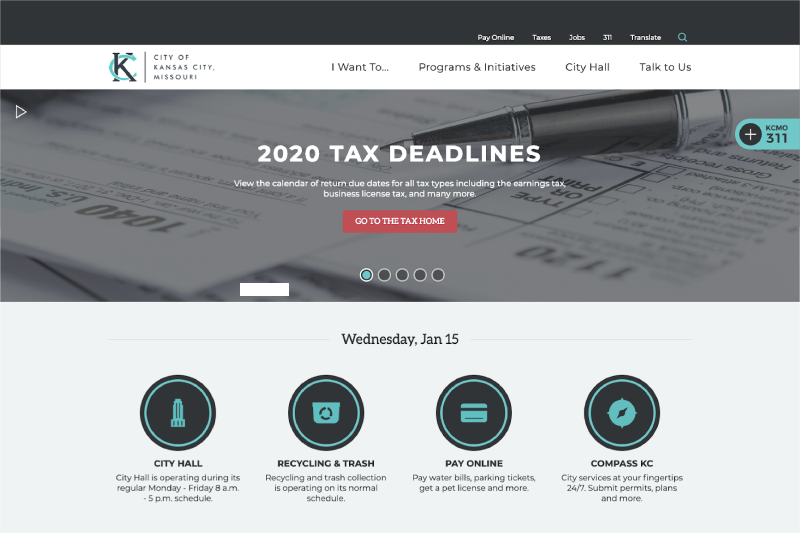
8.1 What are government and civic websites?
These are official website categories managed by local, regional, or national government organizations. Their goal is to inform, serve, and connect with the public. Whether you’re a citizen, a business owner, or a visitor, these websites are designed to help you interact with public institutions online.
They often include forms, service updates, announcements, contact information, and links to various departments. These platforms exist purely for fun and engagement.
8.2 Why government websites matter
- Easy access to services: From paying utility bills to registering a business, government websites help people complete important tasks without visiting an office.
- Transparency and information: these sites keep the public informed about new policies, laws, budgets, and other civic matters.
- Public safety: Emergency alerts, weather warnings and health updates are often posted on civic websites to keep communities safe.
- Support for businesses: Many government sites offer tools, licenses and guidelines for entrepreneurs and business owners.
9. Entertainment websites
When you need a break, want a laugh, or just want to chill, entertainment websites are where you go. These platforms are built to help users relax, have fun, and enjoy digital content, whether it’s watching videos, listening to music, playing games, or catching up on celebrity news.

9.1 What are entertainment websites?
Entertainment websites belong to the website category focused on providing leisure and recreational content. They come in many forms: video streaming sites, music platforms, gaming portals, meme pages, and more. These types of websites are designed for engagement, dun and sometimes even a bit of escape from everyday stress.
9.2 Why entertainment websites are so popular?
- On demand content: users can access movies, shows, songs or games whenever they want, no schedules or waiting.
- Wide range of choices: From action-packed films to relaxing lo-fi playlists or addicting puzzle games, there’s something for everyone.
- Shareability: Entertainment content is super easy to share on social media, helping it reach a wider audience.
- Monetization: For content creators and brands, entertainment websites are also powerful tools for engagement and revenue (think Youtube Ads, Twitch streams, or music subscriptions).
10. Web applications and SaaS platforms
Ever used Google Docs, Canva, or Zoom right from your browser? That’s the power of web applications and SaaS platforms. They’re websites that act like software, helping you get things done without needing to download anything.
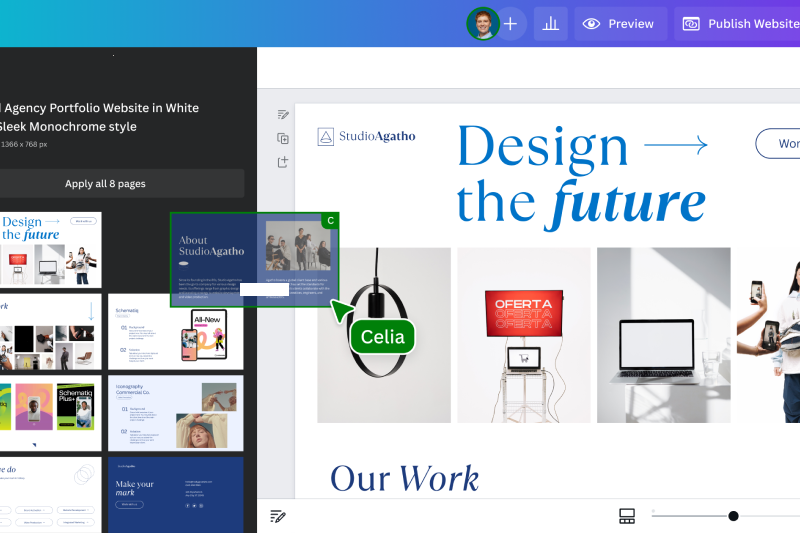
10.1 What are web applications and SaaS platforms?
One of the more advanced type of website design, web apps offer full functionality within the browser. Web applications are interactive websites that perform tasks usually done by desktop software. The SaaS (Software as a Service) platform is a type of web app that offers tools and services through a subscription model, completely online.
These websites fall into a unique website category focused on productivity, collaboration, and convenience.
10.2 Why web applications matter
- No downloads needed: Everything runs in your browser—just log in and start working.
- Work from anywhere: Since they’re cloud-based, you can access your tools and files from any device, anytime.
- Real-time collaboration: Many SaaS platforms let multiple users work on the same project at the same time, perfect for teams.
- Automatic updates: No more installing the new versions, SaaS platforms handle updates in the background, so you always have the latest features.
11. Nonprofit websites
Not every website is built to sell something, some are built to make a difference. That’s where nonprofit websites come in. These platforms help organizations share their mission, raise awareness, and connect with supporters who care about the same cause.
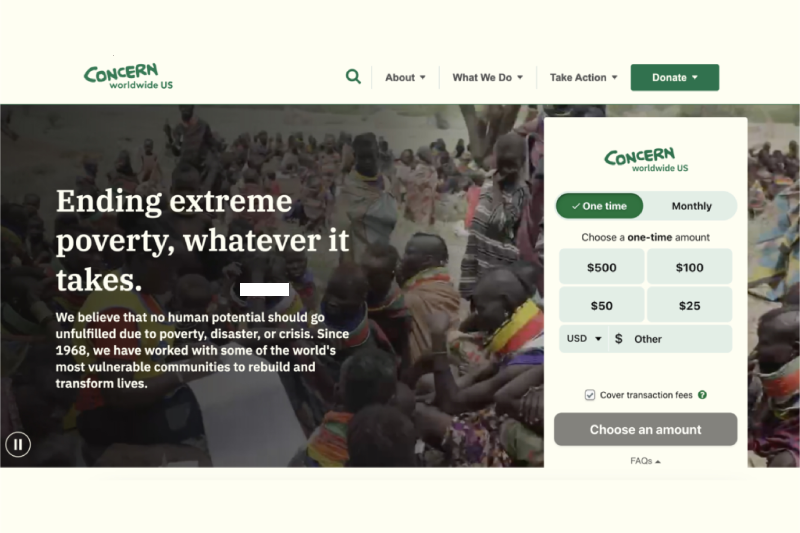
11.1 What is a nonprofit website?
A nonprofit website is designed for charitable organizations, NGOs, community groups, or foundations. It’s a central place to tell the organization’s story, explain its goals, and give people a way to get involved, whether that’s through donations, volunteering, or spreading the word.
This website category focuses less on profit and more on purpose.
11.2 Why nonprofit websites matter
- Build trust and visibility: A clear, informative nonprofit website helps people understand your mission and why it matters.
- Accept donations easily: Many nonprofit sites include secure donation tools so supporters can contribute online, anytime.
- Connect with supporters: Whether it’s volunteers, donors, or advocates, your website helps bring people together.
- Show impact: Nonprofit sites often feature stories, photos, and updates to show what’s been achieved—building transparency and trust.
12. Social media websites
From scrolling through photos to sharing life updates or watching viral videos, social media websites have become a huge part of daily life. They’re not just for fun—they’re powerful tools for communication, community-building, and even business.

12.1 What are social media websites?
Social media websites are platforms where users create profiles, share content, and interact with others. These websites fall into the website category designed to encourage connection, conversation, and user-generated content.
People use them to keep in touch, follow trends, build personal brands, and even shop.
12.2 Why social media websites matter
– Stay connected: Whether it’s with friends, family, or your favorite influencers, social media websites keep people in the loop.
– Create and share content: Users can post photos, videos, stories, or thoughts instantly and reach a wide audience.
– Discover and explore: From trending topics to niche communities, these platforms are great for exploring ideas and finding inspiration.
– Business and marketing: Brands use social media to promote products, engage customers, and build their identity online.
13. Directory websites
Need to find a nearby coffee shop, a plumber, or the best local bakery? That’s where directory websites come in. These sites help people search for and discover businesses, services, and resources quickly and easily.

13.1 What are directory websites?
Directory websites are a type of website category designed to list businesses, professionals, or resources in an organized way. Think of them like the digital version of the Yellow Pages but smarter, faster, and more detailed.
They usually include business names, contact info, reviews, locations, and sometimes booking features too.
13.2 Why directory websites are useful
- Easy search and filters: Users can quickly find what they need by filtering by location, service type, ratings, or price.
- Trusted reviews: Many directory websites include user reviews and ratings, which help people make better choices.
- Increased visibility for businesses: Being listed on a popular directory can help local businesses attract more customers.
- All-in-one info hub: These sites often include opening hours, maps, photos, and even direct messaging features.
14. Conclusion
As you can see, the internet is full of different types of websites, each built for a unique purpose. Whether it’s a business website that builds trust, an e-commerce store that sells products, or a blog that shares your story, every type has its role.
Understanding these website categories helps you figure out what kind of site fits your goals, your audience, and your future plans. Whether you’re starting from scratch or looking to improve what you already have, the right website type can make all the difference.
Check out GoSELL – an all-in-one platform that helps you create business-ready websites, manage sales, and grow your brand online. It’s perfect for entrepreneurs, SMEs, and anyone ready to turn their ideas into action.

